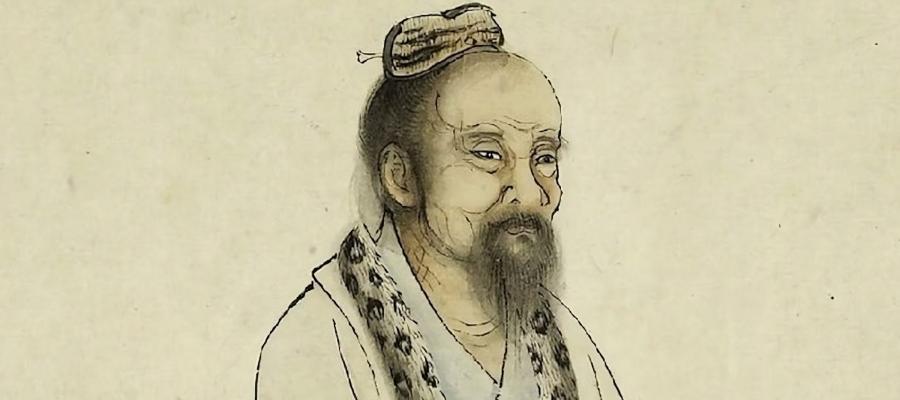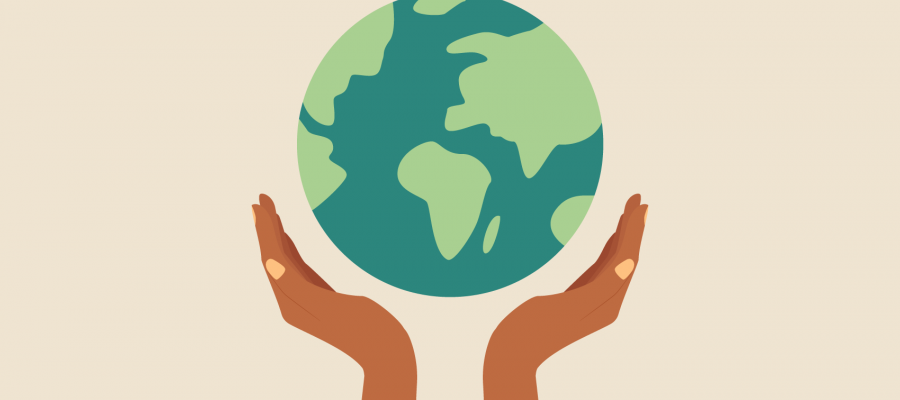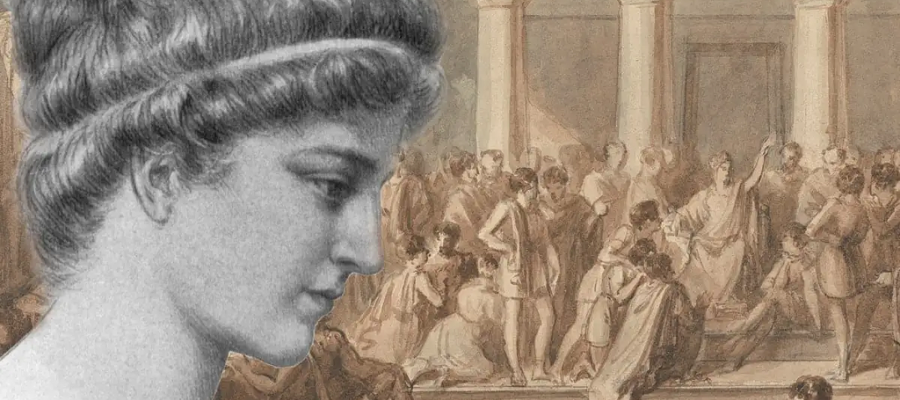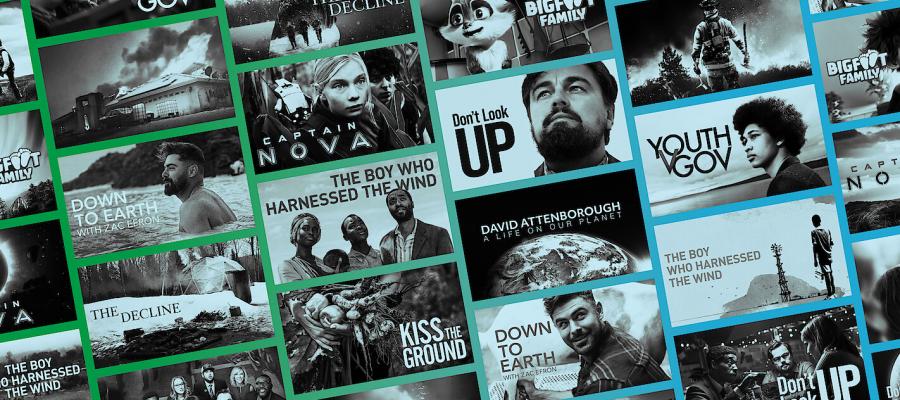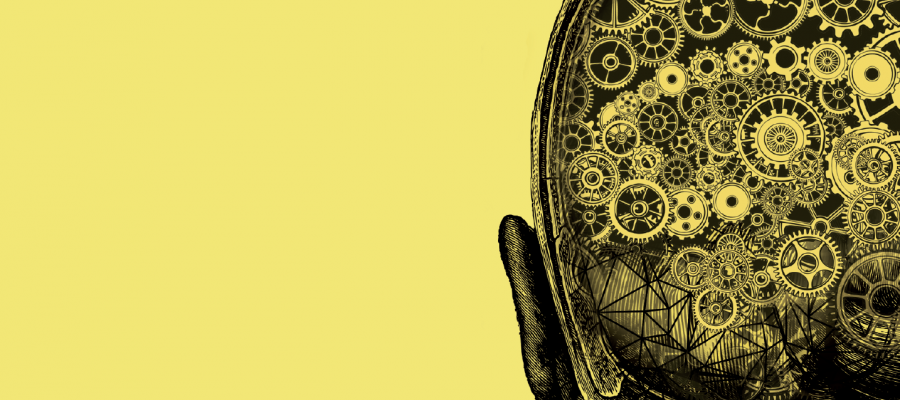Shakespeare's Anti-Heroes?
12
Apr 2024
In Shakespeare’s plays, characters like Othello, Shylock, and Caliban are often more interesting than the heroes. But Shakespeare can also be really unfair to those characters—they basically come off as racist stereotypes.
Read moreWhat's On Your Mind?
28
Mar 2024
We’re constantly sharing what’s on our minds; heck, I'm doing it right now, by writing this blog. What's fascinating, though, is that we also seem to do it without trying, or so much as noticing.
Read moreMargaret the First
21
Mar 2024
Margaret Cavendish, Duchess of Newcastle in the 17th century, was a fascinating polymath. And she had a radical idea about the universe: everything in it thinks. Amoebas, rocks, trees, dust—you name it, it's cogitating.
Read moreThe First Confucian Feminist
22
Feb 2024
Im Yunjidang was an early proponent of egalitarianism: she and thought all human beings have the same nature—men and women aren’t that different from each other, at a deep level. So anybody can achieve spiritual perfection, if they just work hard enough at it.
Read moreWelcome Our New Language-Learning Robot Overlords
02
Feb 2024
Babies have to learn lots of thing: how the objects around them behave, the rules of social interaction, the various parts of language. And it certainly seems like A.I.s learn language too. But what if all they do is imitate human speech?
Read moreQuiz Night: The Slides
25
Jan 2024
For those of you following along at home, here are the slides from our 20th Anniversary Quiz Night, held November 9, 2023 at KALW's popup event space in downtown in San Francisco.
Read moreFarewell to the Republic We Once Dreamt of?
26
Dec 2023
As part of the inaugural Ken Taylor Memorial Episode, we are republishing Ken's 2018 blog post, "Why America Is Not a Nation," in which he articulates some of what inspired this week's special program.
Read moreThe Possibility of Impossibility
15
Dec 2023
Philosophers talk a lot about possible worlds. Out there in the multiverse, maybe there’s a world where Josh teaches logic and Ray teaches Proust; that’s entirely imaginable. But could there somehow be an impossible world? One where Ray both does and does not teach Proust?
Read moreWondrous Wonderment
01
Dec 2023
Wonder is a pretty cool emotion, one that we can feel toward so many things: the stars above us, the beauty of nature all around us, the artistic feats that humans are capable of. And it’s not just big things: watching a hummingbird in your garden, hearing a beautiful guitar solo, or feeling sand under your feet at the beach—those things can fill you with wonder too.
Read moreThe First English Feminist
17
Nov 2023
Mary Astell argued that women are men’s intellectual equals, encouraged women not to marry, and proposed that they go to an all-women’s school instead. And she defended this proto-feminism with some really cool arguments.
Read moreThe Tao of Zhuangzi
03
Nov 2023
Zhuangzi is a Taoist philosopher from 4th-century BCE China as well as the name given to the text containing his writings. It's a lovely—and highly quotable—book, in which he argues (among other things) that everything is relative. He writes, “From the point of view of the Way, no thing is more valuable than any other.”
Read moreThe Philosophical Princess
20
Oct 2023
For the latest episode in our NEH-supported Wise Women series, we’re exploring the life and thought of 17th-century philosopher-princess Elisabeth of Bohemia. These days, she’s most famous for her correspondence with René Descartes, in which she raised several objections to his mind-body dualism.
Read moreThe Politics of Architecture
06
Oct 2023
Do buildings express political viewpoints? Some buildings do, of course: think about monuments to fallen soldiers, city hall buildings, or public housing. But is architecture always political? When it comes to pretty buildings, isn’t a flying buttress sometimes just a flying buttress?
Read moreIs It Real or Is It Simulated?
13
Sep 2023
Have you ever wondered—even if just for a second—whether we might all be in the "Matrix," hooked up to machines and fed a non-stop computer-generated illusion? Or maybe we’re in a version of The Truman Show, where the objects we see are real but the people are just actors pretending to be our friends. How we could ever know for sure?
Read morePerverse Desire
18
Aug 2023
There's something fascinating about those kids who ate laundry soap as part of a weird “challenge,” or people who deliberately loiter on the steps with the “no loitering” sign. These are strange things to want to do—what are people getting out of them?
Read moreMaking a (More) Moral World
09
Aug 2023
Making a better world would be a great thing—but do we really need philosophers to help us do that? They're often some of the worst people out there and the last people we should be taking ethical advice from.
Read moreAncient Renaissance Woman
21
Jul 2023
In her time in the 4th century, Hypatia was one of the most famous philosophers in Alexandria, and indeed in the ancient world. She studied so many different things—mathematics, astronomy, philosophy—and taught them too.
Read morePhilosophy In, Of, and About Mexico
07
Jul 2023
There are so many great ideas in the realm of Mexican philosophy: Sor Juana’s feminism, Emilio Uranga’s existentialism, all that fascinating stuff from the Aztecs and Mayans. But it's worth asking why we lump all those things together.
Read moreSummer Reading Uncut
25
Jun 2023
We're most most eager for you to listen to the edited broadcast and podcast, but there's always good stuff from the conversations we record for these multi-guest episodes that had to be left on the cutting-room floor.
Read moreThe Gender Box(es)
18
Jun 2023
To some, gender is an oppressive system designed to keep women down. People go around saying girls are made of sugar and spice, and boys are made of snips and snails, and pretty soon you’re making 80 cents on the dollar. But there’s another side to gender.
Read moreArt as Climate Action
28
May 2023
Fascism is on the rise, new infectious diseases keep cropping up, and we’re on the verge of environmental collapse: how could art possibly save us? Art may be a nice distraction, but surely what we really need are better leaders, better policies, and people who are willing to listen to science.
Read moreThis Blog Post Is False
21
May 2023
If I say, "I’m lying right now," I'm telling you I'm lying, so if I am actually lying the sentence is true—in which case I'm not lying. But if I am telling the truth, that means I'm lying. So either way, I'm both lying and telling the truth—and that's true contradiction.
Read moreThe Brain as Prediction Machine
25
Apr 2023
Our minds are amazing prediction machines—and sometimes they can even make their predictions come true! There's nothing mystical or magical here—like if you believe in something hard enough, you're going to "manifest" it. We're just talking about the kind of thinking we do all the time
Read moreParfit and the Selves That Matter
10
Apr 2023
Suppose you’re on your daily commute to Mars. You’re about to get beamed up, but something goes wrong—the transporter makes a copy of you on Mars, like it’s supposed to, but it forgets to vaporize you back home. So now there are two of you. And if there are two of you, the question is which one is the real you—the you on Earth, or the you on Mars?
Read moreOlfactory Philosophy
22
Mar 2023
When philosophers talk about perception, they tend to focus on what we see and hear, and rarely on what we smell. But olfaction is a strange sense that deserves greater philosophical scrutiny. For example, when you smell something, what exactly are you smelling?
Read more- 1 of 39
- Next ›









